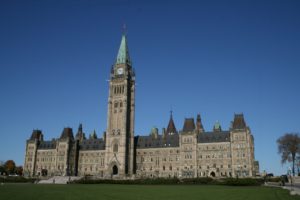 International Leaders Praise Canada’s Focus on Privacy by Design and Collaboration
International Leaders Praise Canada’s Focus on Privacy by Design and Collaboration
Ottawa November 22, 2016 – Digital ID and Authentication leaders from around the world gathered in Ottawa on November 3rd to attend Digital ID International Industry Day. The Day, co-convened by the Digital ID and Authentication Council of Canada (DIACC) and the Treasury Board of Canada Secretariat, is an annual gathering convening public and private innovators from around the world.
Recognizing the critical role that Digital ID and Authentication play in enabling the global digital economy, Digital ID International Industry Day enables global leaders from all sectors to share perspectives that help accelerate the establishment of a secure, trusted, privacy-respective digital ID ecosystem. Attendees include thought leaders from Australia, Canada, Denmark, Israel, Japan, the United Kingdom and the United States.
“Privacy, trust, security, efficiency, transparency – these are all critical to the establishment of an internationally accepted digital ID and authentication ecosystem,” said Alastair Treharne, Digital Identity Advisor, Government Digital Service, UK. “Canada has done an outstanding job in bringing these issues to the fore and is developing a compelling trust framework that we are all watching with great interest.”
Around the world, governments and industries are developing technology and policy frameworks, more commonly known as trust frameworks. A trust framework enables digital identity and, by extension, facilitates trust worthy digital transactions. The Pan-Canadian Trust Framework (PCTF) is a collaborative approach to developing a digital id and authentication ecosystem for Canada. The PCTF enables Canada’s full and secure participation in the global digital economy through economic sector innovation and the enablement of modernized digital service delivery.
“The global nature of the digital economy requires thoughtful and diligent collaboration both amongst different nations and various sectors,” Paul Grassi, Sr. Standards Advisor, The National Institute of Standards and Technology (NIST), U.S. Department of Commerce. “Canada’s model of public and private sector partnership in leading the development of a digital identity trust framework is a great example of integrated planning, and one we pattern after as we engage our stakeholders.”
Canada’s full participation in the digital transformation and global digital economy depends on developing reliable, secure, scalable, privacy-enhancing, and convenient solutions for digital identity. Made-for-Canada solutions reflect and incorporate Canadian principles, business interests, technical models and, demonstrate compliance with Canadian regulations. Made-for-Canada solutions also enable pathways to safe and secure cross-border transactions and service delivery.
“It has been a privilege to welcome global digital ID and authentication leaders to Canada and to share the work that innovators from the Canadian public and private sectors have done to advance the Pan-Canadian Trust Framework,” said Joni Brennan, President, DIACC. “DIACC members share resources by working together to address challenges and accelerate the adoption of digital identity services that respect Canadian cultural values, business needs and regulatory requirements. These collaborative efforts are essential to help secure Canada’s full and beneficial participation in the global digital economy.”
Review the workshop presentations.
About Digital ID and Authentication Council of Canada (DIACC)
Created as a result of the federal government’s Task Force for the Payments System Review, the DIACC is a non-profit coalition of public and private sector leaders committed to developing a Canadian digital identification and authentication framework to enable Canada’s full and secure participation the global digital economy. DIACC members include representatives from both the federal and provincial levels of government as well as private sector leaders.
The DIACC’s objective is to unlock economic opportunities for Canadian consumers, and businesses by providing the framework to develop a robust, secure, scalable and privacy enhancing digital identification and authentication ecosystem that will decrease costs for governments, consumers, and business while improving service delivery and driving GDP growth. In keeping with this objective, DIACC works with partners – in Canada and round the world – to catalyse investments and collaborations in digital ID and authentication. To learn more visit www.diacc.ca or follow us on twitter @mydiacc
For more information, please contact:
Krista Pawley
Digital ID and Authentication Council of Canada
Kpawley@diacc.ca
416-270-9987
